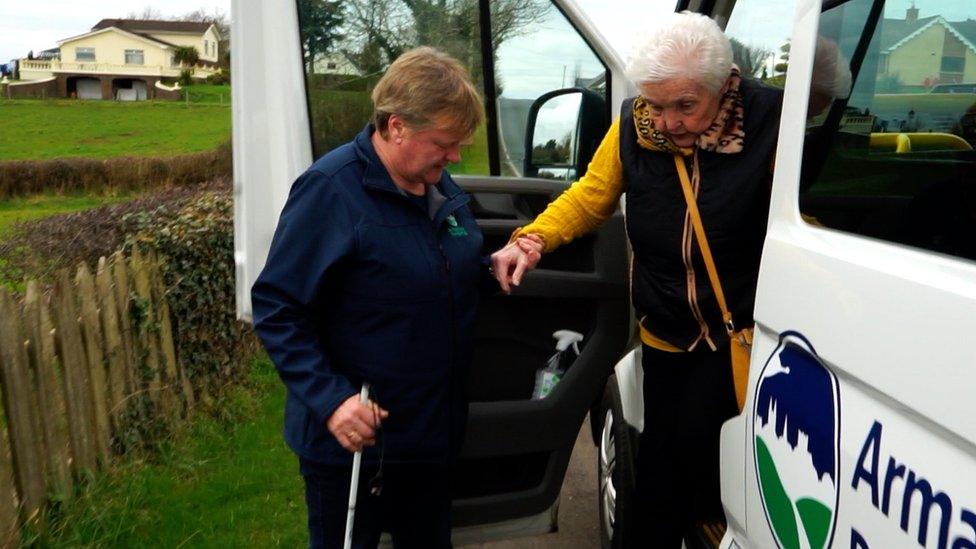‘Buses disappear in our towns in the evenings’

Annie lives in Donaghmore and Pauric lives in Clonoe
- Published
“I honestly can’t remember ever seeing a bus in my area after five o’clock,” said 17-year-old Pauric.
He lives in the village of Clonoe, about a mile southeast of Coalisland in County Tyrone.
He believes there are huge gaps in rural transport and he’s not alone.
Government figures show that only 20% of rural residents in Northern Ireland live within a three-minute walk of the nearest bus stop, compared to 40% of those in urban areas.
Meanwhile, the Northern Ireland Travel Survey shows that almost 70% of urban households reported a bus service frequency of at least once an hour, compared to 20% of those who live in rural locations.
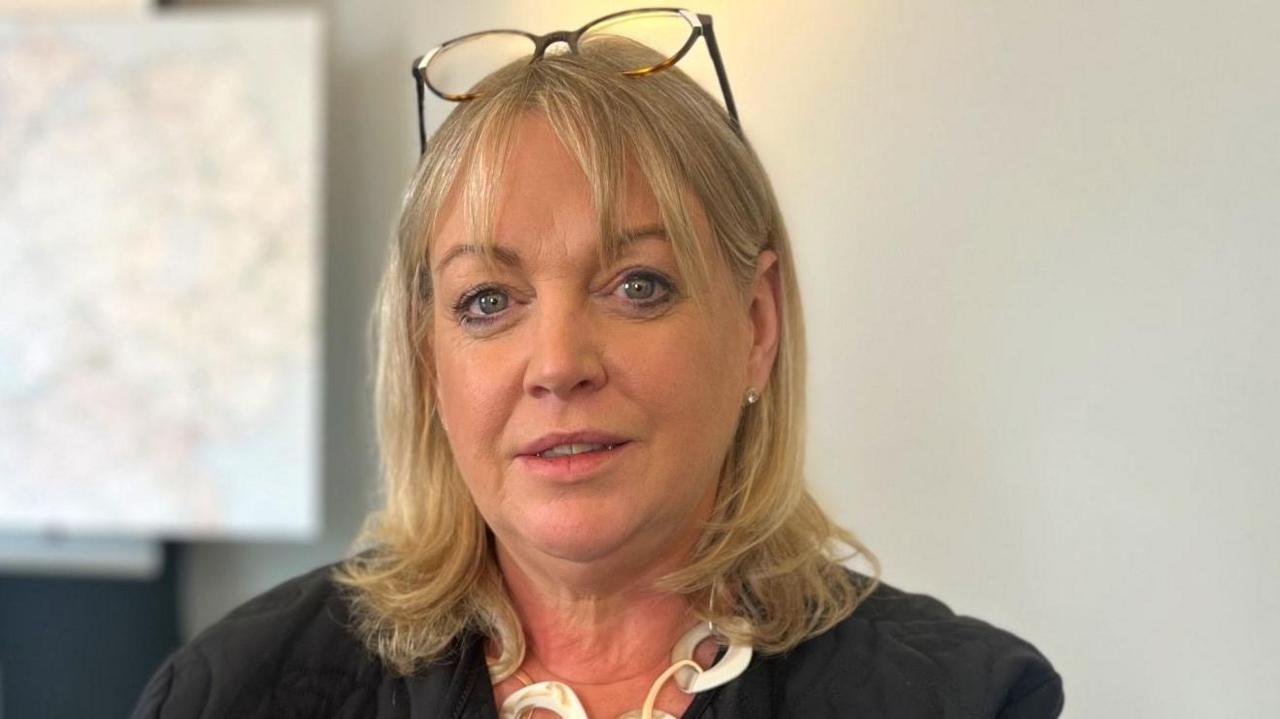
Kate Clifford says that buses virtually disappear in rural towns and villages after six o'clock
Katie Clifford is director of the Rural Community Network and says that public transport virtually disappears after six o’clock in most rural towns.
“The inter-connectivity between regional towns just isn’t there when it comes to public transport, especially in the evenings," she said.
“What you end up seeing is an over-reliance on cars in rural areas and that is especially impacting our younger people.”
Part-time work opportunities 'limited'
BBC News NI spoke to a group of 17-year-olds from St Patrick’s Academy in Dungannon who are currently studying for their A-levels.
Annie is from the rural village of Donaghmore, about three miles northwest of Dungannon and is studying accountancy and business studies.
“We have lots of engineering firms in this area, and not having consistent public transport is bad for business," she said.
“If their employees don’t have access to a car they need to be able to get to and from work, so they really need to look at the public transport infrastructure around here.”

Grace and Isabella both live in rural villages just outside Dungannon
Both Isabella and Grace live in rural villages outside Dungannon and say the lack of public transport has been a barrier to part-time employment.
“I don’t have a car, so it has meant that I can only work at my part-time job whenever I can get a lift in and it means getting limited shifts,” Isabella said.
Grace added: “For me it has meant limiting my opportunity for part-time employment to somewhere that’s close by or in walking distance, and that really narrows opportunities and I don't think that's fair.”

Joseph and Sean say having a car is a huge expense
Joseph from Stewartstown says relying on a car is a huge expense.
“I drive because there are no buses after school. By the time you manage to afford a car, then fuel, and insurance prices are crazy at the minute, it’s not very sustainable,” he said.
Sean is from Cookstown and said: “There used to be a train station in Cookstown, but that was a long time ago, and they really do need to bring it back for faster transport.”
Mid Ulster is one of only two council areas in Northern Ireland that currently has no rail access.
A recently published all-Island Strategic Rail Review made wide-ranging recommendations to improve the network but it could take up to 25 years to implement in full.
Get in touch
What are your experiences of public transport in Northern Ireland?
'A car becomes a necessity'
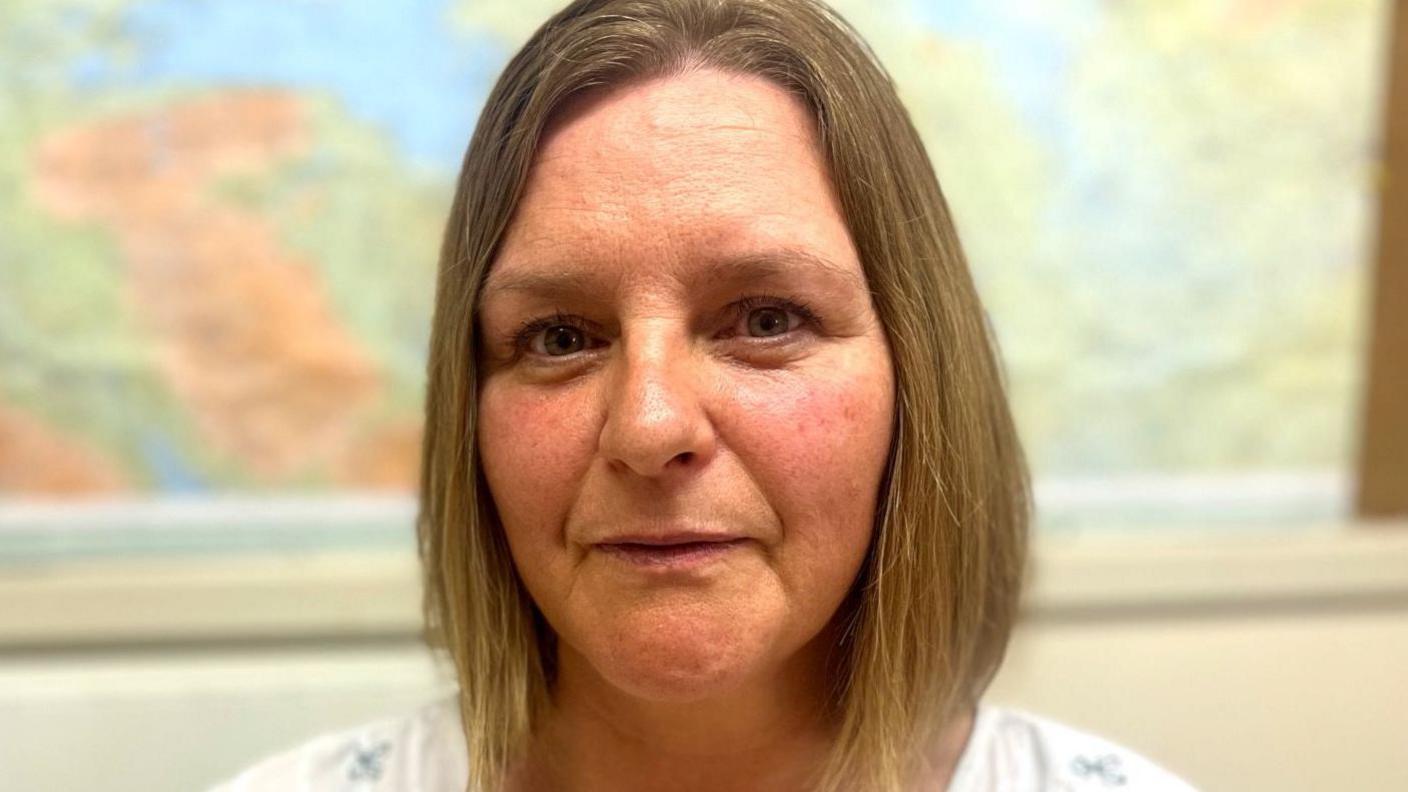
Siobhan Currie conducted the public transport research as part of her studies
It's not just the frequency of buses causing concern but the duration of many journeys between rural towns.
Siobhan Currie lives in County Fermanagh and attended a diploma course in Cookstown earlier this year.
It would take her around one hour and 15 minutes to travel by car.
As part of the research for her course, she found that when using a public bus route, the same journey would take five hours and that there was no return bus when the class finished.
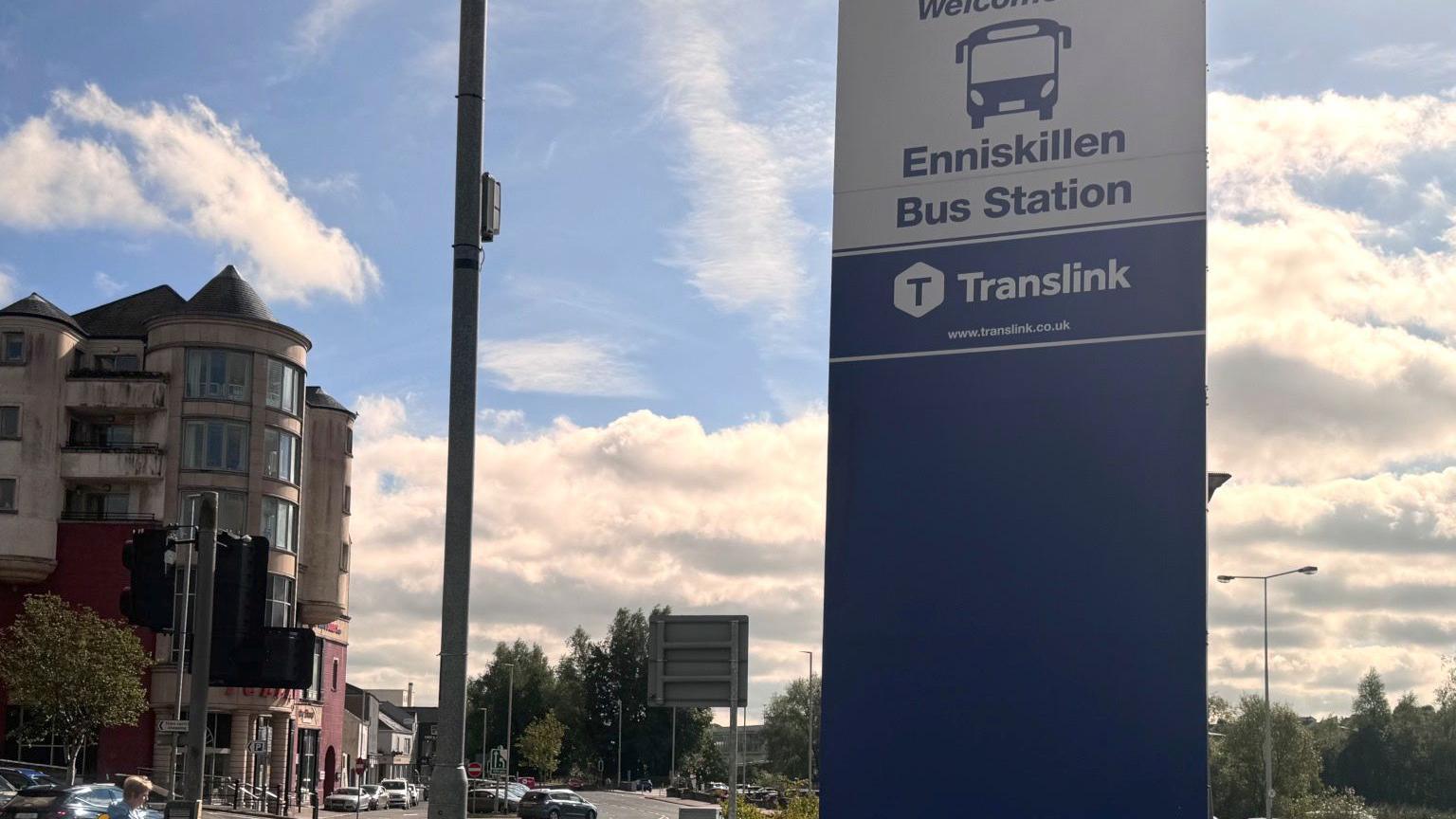
Siobhan Currie would start her five hour journey from Enniskillen bus station
“The journey would involve a couple of stopovers and bus changes, and it just proved to me that public transport between rural towns for things that bit later in the day, just isn’t a viable option," Siobhan said.
“For people in rural parts of Fermanagh and Tyrone, a car isn’t a luxury, it’s a necessity.”
There have been some improvements made to the Cookstown to Enniskillen bus service.
The morning and afternoon services now have journey times between two-and-a-half and three hours.
A Translink spokesperson said: “Translink recognise there is huge potential for growth in public transport and the new Belfast Grand Central Station provides the potential to enhance services across Northern Ireland with appropriate and sustained levels of funding helping to drive economic development and achieve NI climate goals.”
- Published31 July 2024
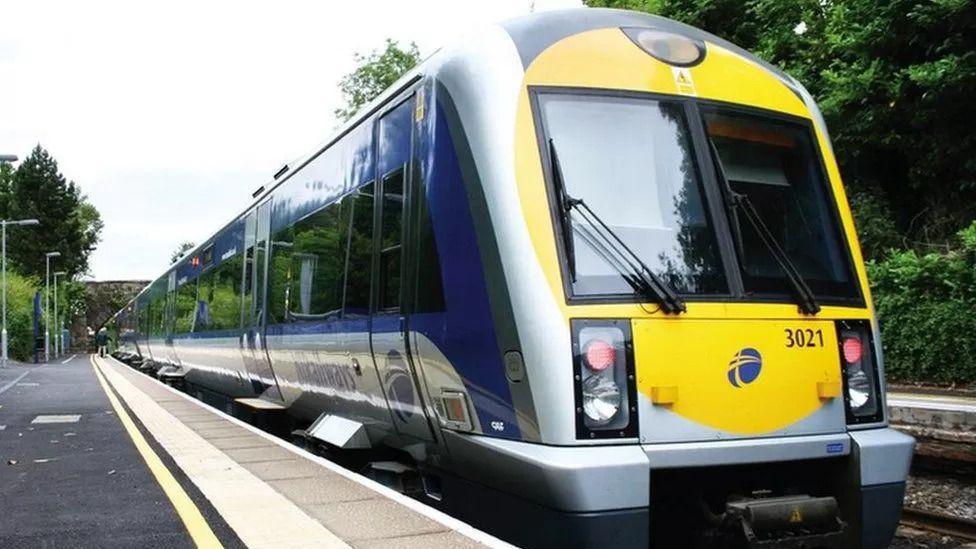
- Published8 March 2023
